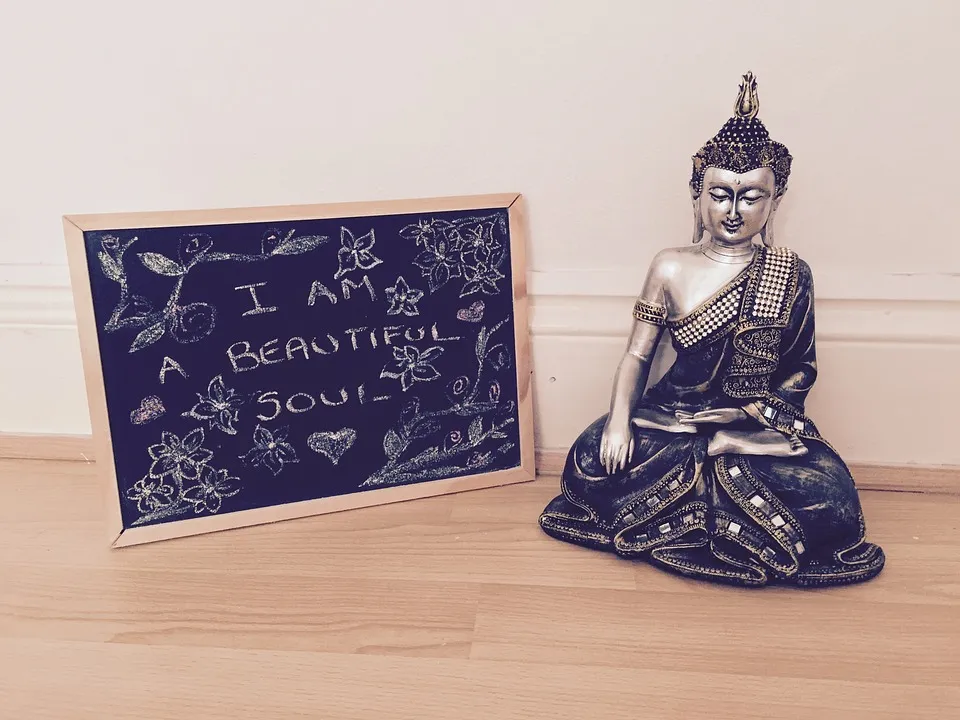When faced with negativity and evil in our lives, it can be difficult to know how to respond. Yet the Bible teaches us to overcome evil with good. In this article, we explore how to embody this principle and cultivate a greater sense of inner peace and ethical living. Join us as we delve into the fascinating and transformative power of forgiveness, compassion, positive thinking, and resilience building.
Understanding the Nature of Evil and Goodness
Have you ever wonder why evil exists in the world? Why people do bad things to each other, or why we sometimes feel negative emotions toward others? Understanding the nature of good and evil is the first step to overcoming evil with good.

Good and evil are not just abstract concepts; they are part of human nature. According to the Bible, humans were created with the potential to do both good and evil. In Genesis 1:31, it says, “God saw all that he had made, and it was very good.” However, after Adam and Eve sinned, the world became corrupted by evil, and humans have been struggling ever since to live up to our God-given potential.
But why do people do evil things? From a biblical perspective, evil is the result of sin, which is a separation from God’s will and a rejection of his love and guidance. Sin can take many forms, such as pride, envy, anger, greed, lust, or selfishness. Whenever we act out of these negative emotions, we distance ourselves from God and hurt ourselves and others.

On the other hand, goodness is the result of following God’s will and living in harmony with his love and guidance. Goodness can take many forms too, such as kindness, generosity, forgiveness, empathy, compassion, or selflessness. Whenever we act out of these positive qualities, we draw closer to God and help ourselves and others.
So, how can we choose to do good and overcome evil? Here are some practical tips:
- Seek guidance from God through prayer and reading the Bible. The Bible is full of stories, teachings, and verses about how to live a good life and avoid sin. Romans 12:21 is a good example: “Do not be overcome by evil, but overcome evil with good.”
- Choose to love your enemies and forgive those who hurt you. This is one of the most challenging teachings of Christianity, but also one of the most powerful. Jesus said in Matthew 5:44, “Love your enemies and pray for those who persecute you.”
- Cultivate positive qualities through practice and habit. Goodness is not just a feeling; it’s a habit of action. Try to do something kind, generous, or selfless every day, even if it’s small. Over time, these actions will become second nature to you and help you resist evil.
Remember, overcoming evil with good is not a one-time event; it’s a lifelong journey. You will face challenges, setbacks, and temptations along the way, but if you keep your faith in God and the power of goodness, you will prevail.
Finding Inspiration in Biblical Teachings
As a Christian, finding inspiration in biblical teachings is one of the best ways to overcome the challenges of life and cultivate inner peace and ethical living. The Bible is a rich source of wisdom, guidance, and comfort, providing us with timeless truths that are applicable to our daily lives. Here are some ways you can find inspiration in biblical teachings:
Read and Reflect on the Bible Verses: The first step to finding inspiration in biblical teachings is to spend time reading and reflecting on the Bible verses that resonate with you. You can start with Romans 12:21, which says, “Do not be overcome by evil, but overcome evil with good.” This verse reminds us that we have the power to overcome evil by doing good, and it’s a great starting point for cultivating a positive mindset and ethical living.
Attend Church and Bible Study: Attending church and Bible study is another great way to find inspiration in biblical teachings. You can interact with other Christians, learn from their experiences, and engage in meaningful discussions that help you deepen your understanding of God’s word.
Watch Sermons and Listen to Bible Teachings: With the advancement of technology, you can easily access sermons and Bible teachings from your phone or computer. You can find sermons on YouTube and podcasts that provide a fresh perspective on biblical teachings. You can also listen to Christian radio stations that broadcast inspiring music, teachings, and sermons.
Practice Daily Devotionals: Daily devotionals are a great way to incorporate biblical teachings into your daily routine. With devotionals, you can read a short passage from the Bible, reflect on its meaning, and practice applying it in your life. This practice helps you build a strong spiritual foundation, deepen your knowledge of the Bible, and cultivate a positive mindset.
Seek Guidance and Support from Your Christian Community: Finally, seeking guidance and support from your Christian community is a great way to find inspiration in biblical teachings. Your Christian community can provide you with practical advice, emotional support, and spiritual guidance that will help you overcome challenges and cultivate a positive mindset.
Overall, finding inspiration in biblical teachings is an essential part of overcoming evil with good and living a fulfilling and ethical life. By reading, reflecting, attending church, watching sermons, practicing devotionals, and seeking guidance from your Christian community, you can cultivate a positive mindset that helps you overcome challenges and achieve your goals.
The Power of Forgiveness and Compassion
When we are wronged, it can be difficult to resist the urge to seek revenge or hold a grudge. However, in Romans 12:21, we are urged to overcome evil with good. One way to do this is through the power of forgiveness and compassion.
Forgiveness can be a difficult thing to practice, but it is integral to a healthy and fulfilling life. Forgiving someone does not mean that we condone their behavior or that we have to forget what they did. Rather, it means that we choose to release ourselves from anger and resentment and move on from the hurt they caused us.
Compassion is another key component of combatting evil with good. Compassion means that we seek to understand others’ perspectives and to approach them from a place of empathy. It does not mean that we excuse their behavior, but it does mean that we recognize their humanity. When we approach others with compassion, we are more likely to resolve conflicts peacefully and to foster positive relationships.
Here are some ways to practice forgiveness and compassion in your daily life:
Practice active listening: When someone speaks to you, give them your full attention and seek to understand their perspective. Avoid interrupting or dismissing them.
Cultivate empathy: Put yourself in other people’s shoes and try to understand what they are feeling. This is especially important when someone has wronged you.
Choose forgiveness: Even if it is difficult, choose to forgive those who have hurt you. This does not mean that you have to forget what they did, but it does mean that you release yourself from the anger and resentment.
Seek to make amends: If you have wronged someone else, seek to make things right with them. This can be a powerful way to rebuild trust and repair relationships.

By practicing forgiveness and compassion, we can transform our lives and those around us. We can choose to overcome evil with good and create a more loving and peaceful world. Let us embrace these qualities as integral parts of our personal growth and ethical living.
Cultivating Positive Qualities for Overcoming Evil
Evil exists in the world, and it can manifest itself in various ways, from violence and hatred to greed and selfishness. But we all have the power to overcome evil with goodness, and to cultivate positive qualities that can make us better people and help us to create a more peaceful and just world.
One of the first steps in cultivating positive qualities is to understand the nature of evil and goodness. Evil is often the result of ignorance, fear, and anger, while goodness is rooted in love, empathy, and compassion. By realizing that evil is a product of negative emotions and beliefs, we can start to develop the qualities that counteract them, such as forgiveness, kindness, and patience.
Another important source of inspiration for cultivating positive qualities is the Bible, especially the teachings of Jesus Christ. The Bible tells us to love our enemies, to forgive those who have wronged us, and to treat others as we would like to be treated. These teachings provide a roadmap for ethical and moral living, and they can help us to cultivate the positive qualities that enable us to overcome evil.
One of the most powerful tools for overcoming evil is forgiveness. Forgiveness is not about forgetting or condoning evil, but about letting go of anger and resentment and freeing ourselves from the negative emotions that can consume us. Forgiveness requires empathy and compassion, and it can help us to build stronger relationships and to create a more peaceful and just world.
Compassion is another key quality for overcoming evil. Compassion is the ability to feel for others, to understand their pain and suffering, and to do something to alleviate it. Compassion requires us to put ourselves in others’ shoes and to see the world from their perspective. By cultivating compassion, we can become more empathetic and caring people, and we can help to make the world a better place.
Other positive qualities that we can cultivate for overcoming evil include kindness, generosity, honesty, and humility. These virtues enable us to build stronger relationships, to be more authentic and open with others, and to lead by example. They also help us to see the goodness in others and to appreciate the beauty and diversity of life.
Of course, cultivating positive qualities is not easy, and it requires a lot of effort and dedication. We will encounter many obstacles along the way, including our own negative thoughts and emotions. But by persevering and staying focused on our goals, we can overcome these obstacles and become the best versions of ourselves.
Ultimately, overcoming evil with goodness is not just about personal growth and self-improvement, but about creating a better world for all of us. By cultivating positive qualities and living a life of ethical and moral integrity, we can inspire others to do the same, and together we can make the world a more peaceful, just, and compassionate place.
Dealing with Negativity and Inner Demons

Negativity and inner demons can take many forms, from self-doubt and fear to anger and resentment towards others. Overcoming these negative emotions and thoughts is essential for cultivating a peaceful and fulfilling life, as well as for developing strong morals and virtues. Here are some steps and tips on how to address and overcome negativity and inner demons:
Acknowledge your feelings and thoughts – The first step towards overcoming negativity is to recognize and accept your feelings and thoughts, whether they are positive or negative. This means being honest with yourself about your emotions and not denying or suppressing them.
Reframe your perspective – If you find yourself stuck in negative patterns of thinking, try changing your perspective on the situation. Look for the silver lining, focus on the positives, and find things to be grateful for. This could be as simple as taking a few moments each day to write down three things that you are thankful for.
Surround yourself with positivity – One effective way to counteract negativity is to surround yourself with positive people, experiences, and environments. Spend time with uplifting friends and family, engage in activities that make you happy, and avoid things that are triggering or emotionally draining.
Practice self-care – Take care of your physical, mental, and emotional well-being by practicing self-care. This could include exercise, meditation, getting enough sleep, setting boundaries, and practicing self-compassion.
Seek support – Don’t be afraid to seek support from others if you are struggling with negativity and inner demons. This could be through talking to a trusted friend, seeking professional help, or joining a support group.
By following these steps and tips, you can actively work towards overcoming negativity and inner demons. Remember, it takes time and effort to cultivate positivity, but the rewards are worth it. Keep in mind the teachings of Romans 12:21, which say “Do not be overcome by evil, but overcome evil with good.” By focusing on the good and cultivating positive qualities like love, kindness, and empathy, you can overcome evil with good in your own life and in the world around you.
The Efficacy of Gratitude and Hope as Tools for Resilience
In times of difficulty and darkness, it can be easy to lose hope and feel consumed by negative thoughts and emotions. However, as a Christian, it is important to remember that gratitude and hope are powerful tools for resilience and inner peace.
Gratitude is the practice of acknowledging and appreciating the blessings in your life. It can be easy to take things for granted, especially when times are tough. However, taking a moment to reflect on the good things in your life, no matter how small, can help shift your perspective from one of scarcity to one of abundance. This mindset can help increase feelings of positivity, contentment, and overall well-being.
Similarly, hope is a crucial component of resilience. When faced with adversity, having hope for the future can help you maintain a sense of purpose and direction. This hope can be rooted in your beliefs and trust in God’s plan for your life. Through hope, you can find the strength to persevere and overcome challenges.

To practice gratitude and cultivate hope, try incorporating the following habits into your daily routine:
- Start and end each day with a moment of gratitude: Take a few moments to reflect on what you’re grateful for each morning and night. This can be as simple as thinking about loved ones or the basic necessities of life that you have.
- Keep a gratitude journal: Write down things you’re thankful for each day. This habit can help you focus on the positive aspects of your life and keep you from dwelling on the negative.
- Pray for hope: Ask God to provide you with the strength and courage to face challenges and to fill you with hope for the future.
- Surround yourself with positive influences: Spend time with people who uplift you and encourage you, rather than tear you down.
- Practice positive self-talk: Be kind to yourself and focus on your strengths rather than your weaknesses.
In summary, gratitude and hope are powerful tools for overcoming negativity and building resilience in the face of adversity. Through intentional practice, you can cultivate a positive mindset and develop the strength to persevere in difficult times. As Romans 12:21 reminds us, “Do not be overcome by evil, but overcome evil with good.”














